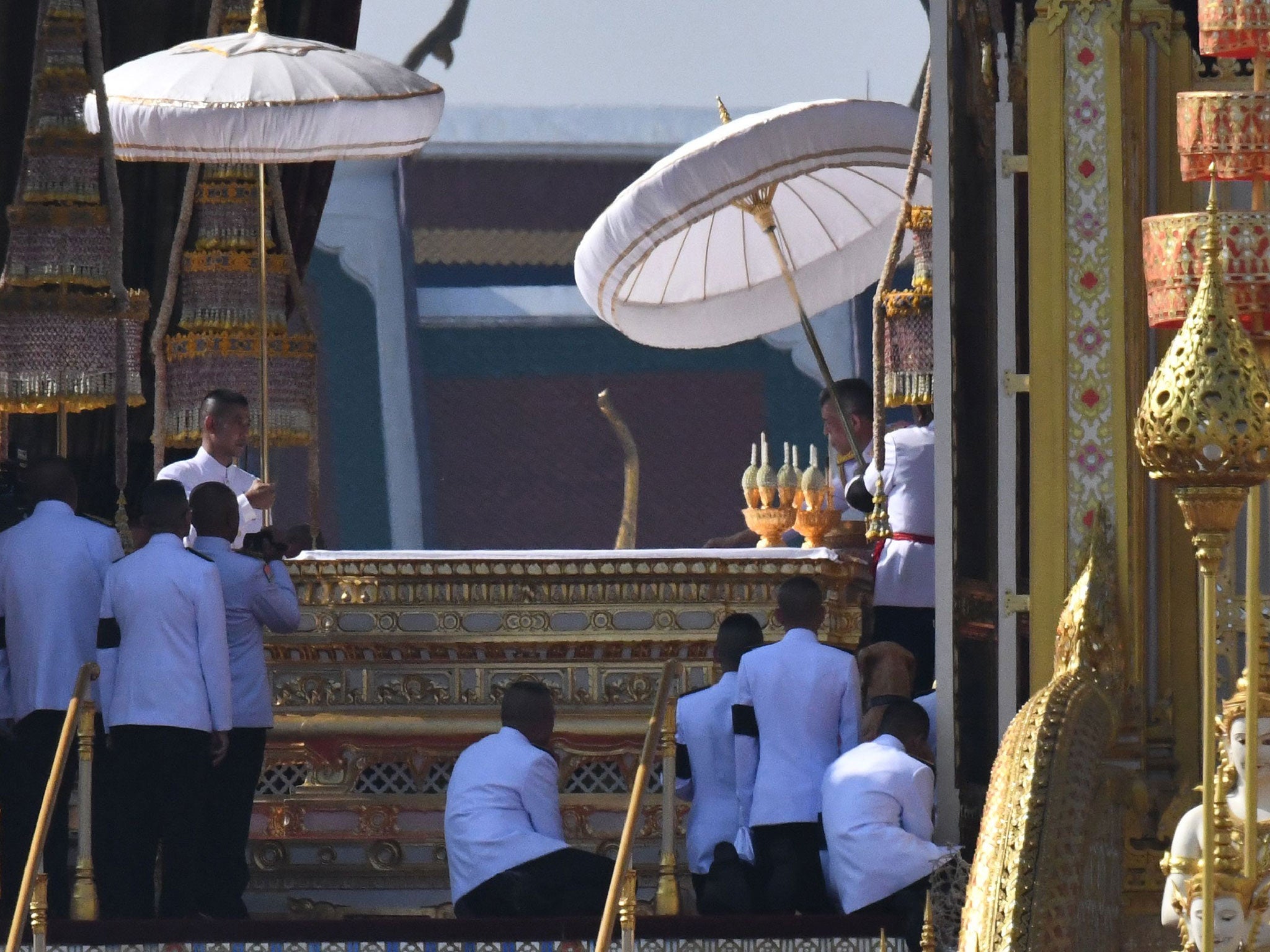New Thai king selects pieces of father's remains with bare hands to become relics
Maha Vajiralongkorn bathes late King Bhumibol's remains before placing them in golden urns to be blessed by monks

Your support helps us to tell the story
From reproductive rights to climate change to Big Tech, The Independent is on the ground when the story is developing. Whether it's investigating the financials of Elon Musk's pro-Trump PAC or producing our latest documentary, 'The A Word', which shines a light on the American women fighting for reproductive rights, we know how important it is to parse out the facts from the messaging.
At such a critical moment in US history, we need reporters on the ground. Your donation allows us to keep sending journalists to speak to both sides of the story.
The Independent is trusted by Americans across the entire political spectrum. And unlike many other quality news outlets, we choose not to lock Americans out of our reporting and analysis with paywalls. We believe quality journalism should be available to everyone, paid for by those who can afford it.
Your support makes all the difference.Thailand's new king picked out parts of his father's cremated remains so they could be enshrined as relics.
The new monarch Maha Vajiralongkorn presided over the burning of his father's remains in a golden crematorium at a late-night ceremony in Bangkok, as part a spectacular five-day funeral for the late King Bhumibol Adulyadej.
After bathing the charred bones, he placed them into golden urns in preparation for blessings by monks.
Then he lead a procession of the ashes through the streets Thailand's capital.
Bhumibol's remains have now been transferred to spiritually significant locations for Buddhist rites that will prepare them to be enshrined on the final day of an elaborate funeral that has transfixed the nation.
His death last October after a reign of seven decades, sparked a national outpouring of grief for a monarch who was regarded by many Thais as a father figure.
The five-day funeral began with Vajiralongkorn performing Buddhist merit-making rites.
A ceremonial urn representing Bhumibol's remains was then transferred from the throne hall to the crematorium in sombre processions involving thousands of troops, a golden palanquin, a gilded chariot and a royal gun carriage.
Just before midnight on Thursday, smoke rose from the ornate crematorium built across from Bangkok's Grand Palace in the year since Bhumibol died aged 88, signalling his cremation had taken place.
Millions of Thai people have visited the throne hall at Bangkok’s Grand Palace to pay their respects since his death.
The adulation Bhumibol inspired was fostered by palace courtiers who worked to rebuild the prestige of a monarchy that lost its mystique and power when a 1932 coup ended centuries of absolute rule by Thai kings.
That effort built a semi-divine aura around Bhumibol, who was protected from criticism by a draconian law that mandates prison sentences of up to 15 years for insulting senior royals.
But he was also genuinely respected for his development projects, personal modesty and as a symbol of stability in a nation frequently rocked by political turmoil, though his influence waned in his final years.
The lese majeste law has been used with increased frequency by the military junta that overthrew a democratically elected government in 2014.
The law has discouraged open discussion about the role of the monarchy within Thai society even as the country evolves in other ways.
Join our commenting forum
Join thought-provoking conversations, follow other Independent readers and see their replies
Comments